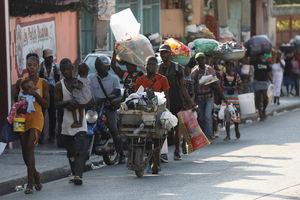Uptake of HIV prevention drugs rises in Kisumu, Siaya

The pre-exposure prophylaxis.
What you need to know:
- Other than Kisumu and Siaya, the government also rolled out the service in Nairobi, Kiambu, Migori and Homa Bay counties due to low uptake of the drug that is used by HIV-negative people to prevent the virus.
The dispensation of Pre-Exposure Prophylaxis (PrEP) and and Post-Exposure Prophylaxis (PEP) in community pharmacies in Kisumu and Siaya counties has significantly bolstered the uptake of the HIV prevention drugs.
The new concept aimed at transforming how healthcare services are delivered has helped address barriers to HIV prevention in the high-prevalence counties.
Pharmaceutical Society of Kenya (PSK), Nyanza Branch Chairperson Irene Olweny said the involvement of the pharmacists has bridged a crucial gap among those at high risk of contracting the virus.
“Previously, many individuals were hesitant to seek HIV prevention services due to stigma and the inconvenience of visiting medical facilities. But now people no longer need to go to hospitals and make long queues to access this life-saving treatment,” said Dr Olweny, adding that the move has brought the service closer to those who need it most.
Dr Olweny noted that in the last 14 months, Kisumu County has enrolled 293 PrEP and PEP clients while Siaya has enlisted 432.
Other than Kisumu and Siaya, the government also rolled out the service in Nairobi, Kiambu, Migori and Homa Bay counties due to low uptake of the drug that is used by HIV-negative people to prevent the virus.
PrEP, a daily medication, reduces the risk of infection in HIV-negative individuals through sex by about 99 per cent. It also reduces the risk of getting the virus from injection drug use by at least 74 per cent.
Its dispensation is particularly important for key populations such as serodiscordant couples (where one partner is infected with HIV), sex workers and young women who are disproportionately affected by HIV.
On the other hand, PEP is recommended to be taken 72 hours after a possible exposure to HIV to prevent infection.
However, it is not meant for regular use by people who may be exposed to HIV frequently but only in emergency situations.
Dr Olweny, who is also the head of Pharmacy at Jaramogi Oginga Odinga Teaching and Referral Hospital, said the dispensation has embedded community pharmacies as crucial healthcare access points.
She pointed out that the ease of accessing PrEP in a more private and familiar settings has encouraged those at high risk to take proactive steps in protecting themselves from the virus.
Dr Olweny added that the integration of PrEP into local pharmacies is part of a broader shift towards making healthcare services more accessible and promoting preventive rather than curative healthcare.
Through the partnership with PSK and county governments, she noted that the programme has enabled pharmacists and pharmaceutical technologists to play a pivotal role in dispensing PrEP.
Kisumu East Sub-county Medical Officer of Health Ken Abuka said: “Integrating PrEP into community pharmacies has made the medication more accessible.”
He pointed out that the initiative aligns with the theme of September 25, 2024 World Pharmacists Day -“Pharmacists Meeting Global Health Needs” - which underscores the importance of pharmacists in achieving universal health coverage.
“We know very well that HIV has had a huge impact on our communities,” he added.
Nursing officer in charge of Kuoyo Health Centre in Kisumu East Irene Akello, noted that the intervention has changed lives in areas hardest hit by HIV. “Traditionally, HIV prevention strategies relied heavily on awareness campaigns and condom distribution. However, the introduction of PrEP represents a shift towards preventative measures,” she said.
Serving a population of about 12,600, Ms Akello noted that the intervention has changed lives.
Beyond HIV prevention, Dr Olweny stated that community pharmacies have also been instrumental in improving access to other healthcare services such as family planning and immunisation.





